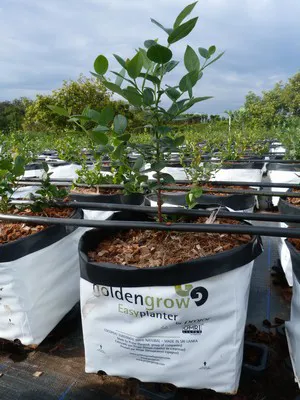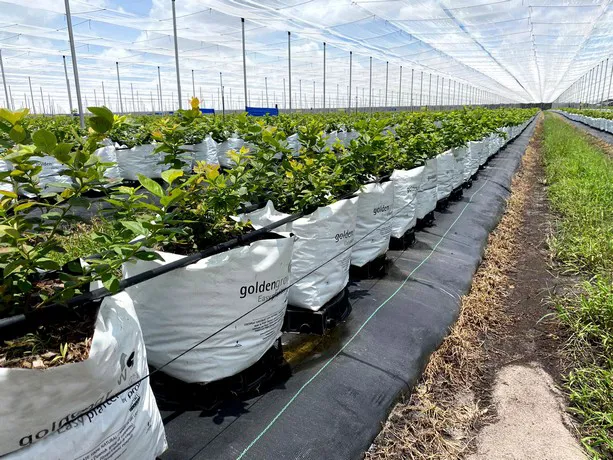In recent years, the cultivation of soft fruits has developed exponentially all over the world thanks to the growing demand of consumers. This increase has meant that the technology applied to its cultivation has also evolved rapidly, with production systems, such as soilless cultivation, which have allowed many countries to become the main producers without having adequate land for cultivation.
The initial phase is crucial for the success of the crop, since in order to develop the plant needs to adapt to the climate and the chemical-physical characteristics of the soil. "Even in areas with unsuitable soils such as those with a pH that is too high or clayey, soilless cultivation allows the cultivation of different species of small fruits, even reaching plant densities of up to 9,000 plants per hectare," says Álvaro Villalba, expert in hydroponics in Projar.
Projar, a company specialized in soilless technology with over 15 years of experience in hydroponic projects, offers a wide range of specific products, but above all technical advice that guides producers in managing the cultivation to make the profitable investment and maximizing productivity in the early years. "Our continuous feedback with the customer has allowed us to broaden our knowledge and experience in soilless cultivation of berries, aware of the challenges facing the producer and developing customized solutions to improve the results of their production," explains Villalba.

The choice of substrate is the key to success in the case of soilless cultivation. One of the aspects of this cultivation in which Projar offers technical advice is the choice of substrate, as it is fundamental for the yield and profitability of the crop. "When the plant is grown above ground, the substrate must be of high quality, offering the root system a suitable environment to develop and ensuring that the plant reaches its maximum productive potential" explains Juan Manuel García, Product Manager and technical consultant by Projar. "For this reason, we have developed the Premium coconut fiber blend, which is particularly suitable for plants with high drainage requirements, a high organic matter content and very sensitive to excess water, such as blueberries."
The Premium blend is made up of 80% chips and 20% coconut fiber. This high content of chips helps to maintain the structure and stability of the substrate over time thanks to the greater particle size and high lignin content of coconut fiber. "Precisely the long useful life offered by Premium is the differential value for which many blueberry producers decide to use it" García points out. Unlike other types of substrate, the Premium blend does not degrade or decompose over time, maintaining its homogeneity throughout the crop cycle."
"When choosing an inappropriate substrate in sensitive crops such as blueberry, control over production can be lost, as the intended drainage and electrical conductivity of the substrate is not achieved. Premium, on the contrary, guarantees a minimum percentage of degradation while preserving the aeration and drainage properties in the root environment."
Likewise, having technical knowledge of fertigation management will help the grower achieve good health and productivity of the blueberry plant. "We provide our customers with a technical consulting service with a team of technical specialists in intensive outdoor and greenhouse hydroponic production, thus reinforcing our commitment to help achieve production success," explains Juan Manuel García.
Projar created a practical guide on the efficient use of coconut fiber that can be downloaded here.
![]() For more information:
For more information:
PROJAR
La Pinaeta s/n · Polígono Industrial de Quart de Poblet, 46930 Quart de Poblet, Valencia (España)
Tel: +34 961 597 480
projarinternational.com
